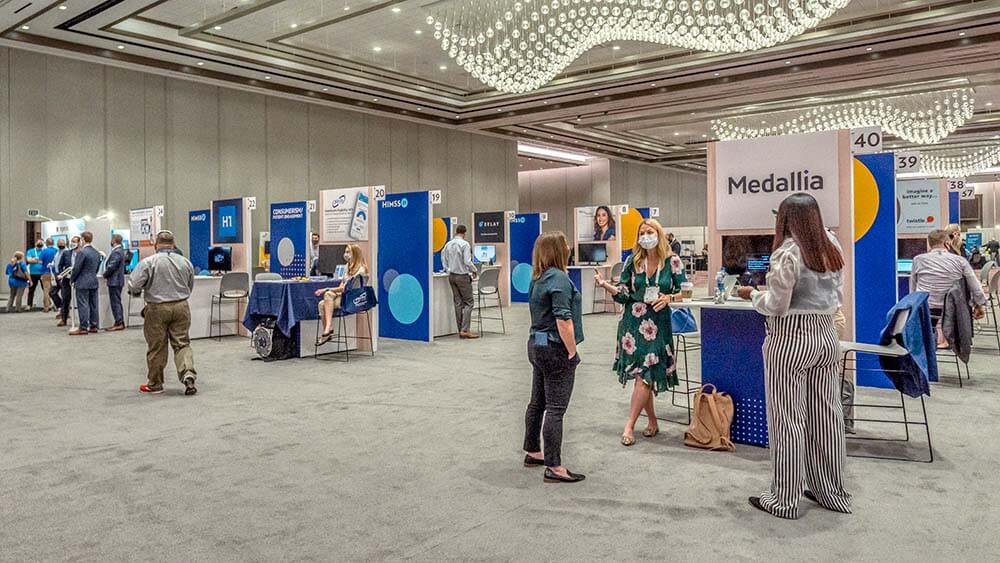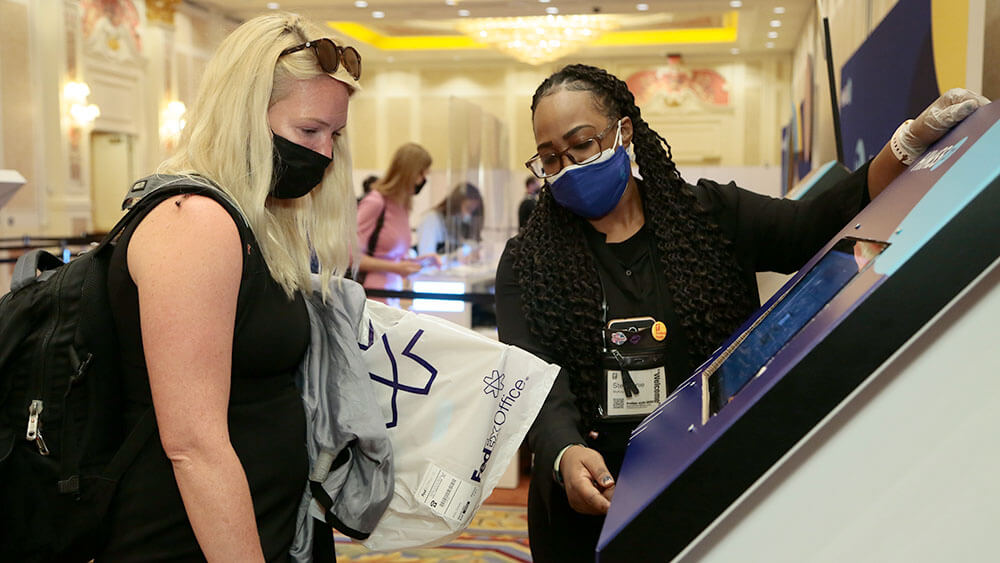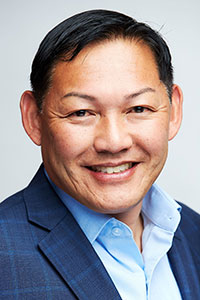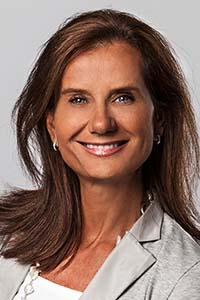
Editor Jennifer N. Dienst’s favorite stories of the year involved meetings that boldly — and safely — convened in-person this year, such as HIMSS21. (Courtesy Caesars Entertainment)
As we close out 2021, the editorial team reflects on what stories we’ve worked on this year that have stuck with us.
Hello Oakland
My favorite story of 2021 is the one that I currently am working on — the North American Chinese Invitational Volleyball Tournament (NACIVT), held in Oakland, California, from Friday, Oct. 8 to Monday, Oct. 11. And as I thought about why the story has been almost pure pleasure to work on, I realized it was because of the same things that make the meetings industry rewarding. Here are a few of those reasons, not in order of their importance:
- I experienced something almost entirely new. According to Mick Mahoney and Kevin Chesters, co-authors of The Creative Nudge, doing new things “is like a neurological double espresso.” That’s exactly how it felt to attend the tournament, drinking in the sights and sounds in Oakland’s historic Chinatown on a beautiful October weekend. The event introduced me to a rich cultural phenomenon I knew nothing about.
- I saw Oakland in a new light — and made new connections. I moved to Oakland in late spring, and the pandemic put a damper on my explorations. Rhanee Palma, formerly of Visit Oakland and now owner of her own company, invited me to tag along for dinner and drinks in Oakland’s Uptown neighborhood with friends from the local restaurant and hotel worlds. Along with enjoying great food and drink, it reminded me of how quickly community can form when event organizers create warm and welcoming environments.
- Its organizers were motivated by the desire to create positive change. NACIVT usually rotates its tournament though a handful of major cities in North America. But after anti-Asian hate crimes spiked in Oakland, NACIVT decided that the Oakland Chinatown community could use their support this year. NACIVT worked with Oakland Chinatown’s leaders and other community groups to bring Asian athletes and residents of Oakland’s Chinatown together in a meaningful way. Learning how members of the local community made sure the visitors felt welcome and safe brought a lump to my throat — to find out more, don’t miss the story in the January-February issue. — Barbara Palmer
Going Bold

In addition to requiring proof of vaccination, all on-site participants were required to wear masks at HIMSS21. (Courtesy HIMSS)
In keeping with my one-word theme for 2022, gumption, I most enjoyed writing about the groups who were bold enough to be the first to convene again but — and this is key — who did it safely, thoughtfully, and with humility. One of the best examples of this was HIMSS’ Global Health Conference & Exhibition, held in Las Vegas this past August. One of the health-care industry’s largest events, HIMSS21 was also one of the first large events of any industry to mandate proof of vaccination for all on-site attendees and staff, along with implementing many other layers of health and safety protocol. In an interview with Convene, the HIMSS21 team shared how they navigated this challenge, what worked, and what didn’t. The American College of Emergency Physicians (ACEP), which held its scientific assembly in Boston this past October, is another great example of a group that went above and beyond to safely gather in-person. And although the live portion was a hit — “people were so happy to see each other and reconnect again,” said ACEP COO Bobby Heard — like many other groups have found, the hybrid approach still needs tweaking. “We’ve got to disconnect these — these are two separate meeting products,” Heard said. “This idea that we ought to try to figure out how to live stream or … recreate the experience — it’s really very difficult to do that and technically challenging and extremely expensive.” — Jennifer N. Dienst
Combatting Racism

Gary Murakami
The story I am most proud of working on this year is “Combatting Racism Against Asian Americans in the Events Industry.” The pandemic has given many of us a chance to reflect on how we can build a more inclusive, equitable, and sustainable society, but has also — disturbingly — brought on a new wave of hate crimes and discrimination against the Asian American and Pacific Islander (AAPI) community. I had the honor of speaking with Cyndy Yu-Robinson, executive director of the National Association of Asian American Professionals (NAAAP) and Gary Murakami, GTP, GLP, CMP, CMM, DES, director of global sales for MGM Resorts International, about the responsibility both destinations and event organizers carry in making all visitors feel welcome and safe. “We want to see that there are safe places for people to go,” Yu-Robinson told Convene, and that local Chinatown districts are well-kept, well-lit, and just as inviting as other neighborhoods. “Put Asian stores on your ‘places to visit’ lists, and make sure we feel welcomed in your city, because staff members” — as well as languages spoken, written, and translated — “all reflect that your destination recognizes us, and recognizes that Asians are pretty powerful consumers.” And events, Murakami said, play a crucial role in making the AAPI community feel seen, heard, and protected as well. “If we want to change people’s hearts and minds,” he said, “we need to use our industry as a platform for change.” — Casey Gale
Finding Silver Linings
I think what has given me the most satisfaction during another trying year for our industry is looking for the silver linings. In our stories, we haven’t shied away from or sugar-coated difficult realities, but at the same time, we’ve deliberately sussed out the positives that have emerged from living through the pandemic.

Patrizia Semprebene Buongiorno
One of the most inspirational industry professionals I interviewed for our September/October cover story on new business models that have sprung up during the pandemic was Patriza Semprebene Buongiorno, who embodied a philosophy of being open to learning lessons during this challenging time. Buongiorno, vice president at the Milan, Italy–based AIM Group, told me that the COVID crisis prompted her organization to become flatter, less siloed, and more collaborative — “a free, big, think tank” where staff felt “freer to experiment.” One of those experiments was sending a truck, outfitted with a broadcast studio, to eight cities in Italy, setting up tents and outdoor screens in hospital parking lots to provide conversation and content to physicians. It was a kind of reverse engineering — these health-care workers on the frontlines fighting COVID were unable to travel to a conference so AIM brought the conference to them.
Buongiorno’s concern was that a return to in-person events would result in less of this kind of inventive thinking. “We have this obsession now,” she said, “that we want really to keep all the positive that came from this virus. That COVID would leave at least a good legacy — the capacity to change, to become flexible, to be more lean, to be more efficient, to be more innovative. But you have to work at that every day.” — Michelle Russell
